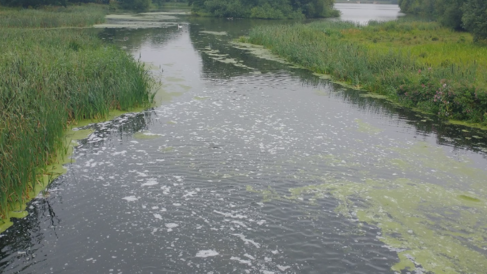The Value of Water

What is the value of water to you?
Anthropologist Dr Anastasia Badder and engineer Dr Edoardo Borgomeo have secured funding to explore this question across sectors and disciplines, through a three-part workshop series.
Together, they aim to:
- Identify limits to current conceptualisations of and approaches to decision-making about water,
- Surface diverse value systems of water beyond the economic and commodity-based; and
- Develop methods for incorporating and building on values-based approaches to enhance sustainability decision-making and behaviours.
Workshops run from 8 May to 12 June 2025,* and the funding provides some subsidy to cover travel (and if necessary accommodation) for external participants.
Participation is largely by invitation and capacity is limited (especially for the first workshop). However, anyone interested to join is encouraged to contact Dr Badder for additional information. Or fill the registration form if you are certain you would like to participate.
Session 1: Walking with water (8 May, 13:00–16:30)
This workshop invites participants to get close to local waters threatened by development. It will involve a guided water walk, reflective exercise, and group discussion.
The walk will be oriented by more-than-human perspectives and the notion of deep time, two concepts that play important roles in a number of religious and spiritual ways of being and that invite a decentering of the human.
Participants will have two options for reflection: identifying a feature in/along the river and drawing it OR identifying a feature in/along the river and writing a vignette from the perspective of that being. Observational drawing requires the artist to step away from their abstract vision of a given thing and connect with and attend closely and methodically to that which is actually in front of them. Imagining the perspective of another being, including beings typically taken as inert or ‘dead’, requires the writer to seriously consider other-than-human forces, interests, concerns, agencies, alliances, and politics.
The group discussion will begin with sharing reflections. The group will then be invited to consider (a) the ways they typically encounter water and the kinds of waters they encounter, (b) their relationships with water, and (c) the value(s) underlying those encounters and relations.
Finally, we will discuss any potential affordances and/or limitations to those values that might have been surfaced by this activity.
This session will begin and end at the Faculty of Divinity, West Road, Cambridge. Maximum capacity: 15 places.
Session 2: Speculations on water (28 May, 10:30–15:00)
This workshop invites participants into a speculative space to debate, analyze, and imagine possible water futures.
Presented with a fictional water scenario, participants will first hear from a series of water experts and then be tasked with responding to the crisis in a limited period of time. Requiring systems thinking and bringing together diverse water actors, this exercise advances innovative and expansive discussion on water futures.
Lunch and refreshments will be provided. This session will be hosted at the Faculty of Divinity, West Road, Cambridge.
Session 3: Reasoning with water (12 June, 16:30–18:30)*
At this public workshop, we invite participants to try out Scriptural Reasoning in relation to water.
Scriptural Reasoning is an interactive practice in which people from different backgrounds read and discuss short pieces of different scriptures together. The aim is to have a rich conversation without assuming agreement or expertise. Everyone is invited to share their thoughts on every text.
By listening to others talk about a text, this workshop enables participants to learn about different scriptures and to learn how others reason and engage religious texts.
Outcomes and outputs
Outcomes: Across this workshop series, participants from academic, policy, activist, religious and spiritual, and other spaces will have the opportunity to network, share knowledge, identify knowledge gaps faced by the water industry and climate activists alike, and explore how cross-sector exchange and values-based approaches could fill those gaps. We will also identify concrete collaboration opportunities, including that might be pursued through further research grant applications to funders (e.g. John Templeton Foundation Religion, Science and Society; Ofwat Innovation Fund). In the long-term term, this series will support the mainstreaming of values-based approaches to water management in the UK.
Outputs: The Cambridge team will prepare a brief summarizing all workshop findings, which will be circulated to participants. Based on that brief and any feedback, the team will prepare a practical guide for values-based cross-sector climate work for interested stakeholders. We also envision preparing (a) one or two blog posts reflecting on values-based approaches for LSE Religion & Global Society, Nature (opinion section), or similar, and (b) a journal article on the role, meaning and potential of value(s) for water management.
* Edit, 07.25: Due to unforeseen circumstances, the project duration has been extended. We aim to run a further iteration of workshop 3 in early 2026.
